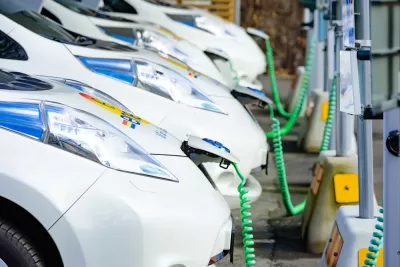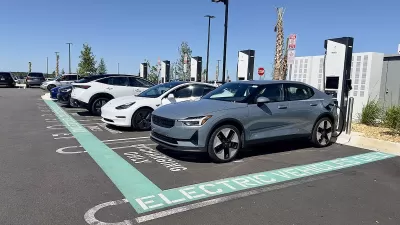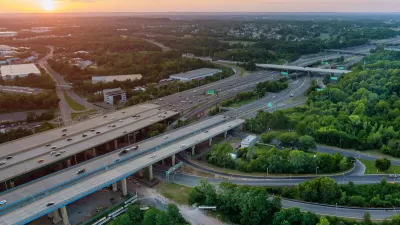Governor Jerry Brown and the California Legislature reached a historic agreement to raise the gas tax, but electric vehicle owners will now be required to pay a yearly fee, Will this impact EV sales in the US's best market?

Although the number of electric vehicles on the road continues to climb and new vehicles are being deployed into the market, recent state policy decisions have placed potential stumbling blocks in front of the growing industry. As part of the major California transportation infrastructure-funding package, EV owners will begin to pay a yearly fee to contribute to road maintenance.
California has the country's largest contingent of plug-in vehicle owners, and provides a myriad of financial incentives to encourage adoption. However, as a part of Senate Bill 1, the landmark transportation-funding package, California will charge a one-time registration fee of $100 for plug-in vehicles starting in the 2020 model year. The fees are part of a bill approved last week that is slated to generate more than $52 billion over 10 years, and will chip away at a backlog of repairs estimated to cost about $130 billion.
To investigate further, The Planning Report sat down with Joel Levin, Executive Director of Plug-In America, to explain the impact of these mixed policy signals. Levin reinforced an optimistic view of EVs in California and the global market overall, and is a stanch believe that EVs are the future for global transportation.
In addition to discussing the impacts of the transportation fees, Levin opines on the ongoing Volkswagen settlement that will fund EV charging infrastructure. Levin hopes for a single umbrella structure that would provide electricity as easily as driving to a gas station. He hopes that VW will be able to create a single structure, "a de facto standard for interoperability that other companies can jump into...and that creates an overarching framework that drives us toward interoperability of all stations."
FULL STORY: Electric Vehicles Not Exempt From Gov. Brown’s Road Repair Funding Plan

Maui's Vacation Rental Debate Turns Ugly
Verbal attacks, misinformation campaigns and fistfights plague a high-stakes debate to convert thousands of vacation rentals into long-term housing.

Planetizen Federal Action Tracker
A weekly monitor of how Trump’s orders and actions are impacting planners and planning in America.

In Urban Planning, AI Prompting Could be the New Design Thinking
Creativity has long been key to great urban design. What if we see AI as our new creative partner?

King County Supportive Housing Program Offers Hope for Unhoused Residents
The county is taking a ‘Housing First’ approach that prioritizes getting people into housing, then offering wraparound supportive services.

Researchers Use AI to Get Clearer Picture of US Housing
Analysts are using artificial intelligence to supercharge their research by allowing them to comb through data faster. Though these AI tools can be error prone, they save time and housing researchers are optimistic about the future.

Making Shared Micromobility More Inclusive
Cities and shared mobility system operators can do more to include people with disabilities in planning and operations, per a new report.
Urban Design for Planners 1: Software Tools
This six-course series explores essential urban design concepts using open source software and equips planners with the tools they need to participate fully in the urban design process.
Planning for Universal Design
Learn the tools for implementing Universal Design in planning regulations.
planning NEXT
Appalachian Highlands Housing Partners
Mpact (founded as Rail~Volution)
City of Camden Redevelopment Agency
City of Astoria
City of Portland
City of Laramie





























